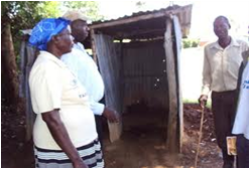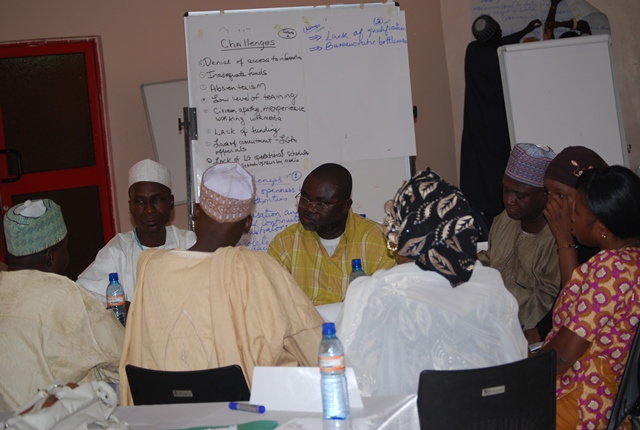Practitioner's Tool / Bottom-up Planning Process
Engaging Stakeholders
To start the bottom-up planning process, identify representatives from the community, including facility owners, service providers, business councils and associations, media representatives, neighbors, utility operators, various regulatory officials, and others with an interest in the project. Bringing these representatives together for a stakeholder meeting is an opportunity for program organizers to highlight the issues, identify the opportunities, gain consensus that the problems are real, and obtain commitments from participants that they will work together to solve the problem.
Stakeholder involvement is an important preliminary step in the bottom-up planning process as these are the people who drive the demand and eventually pay for the services. Projects with real stakeholder involvement are more likely to succeed. Spend time in the early stages of the project to seek out representatives, listen to them, address their concerns, and motivate them to participate in the program moving forward.
Technical Working Group
A technical working group, often called a TWG, is a group of stakeholders that agree to work together to advance technical aspects of the project. TWG members are selected from the pool of stakeholders to represent various interests or technical disciplines. They are typically asked to serve by the mayor or city official for a defined term, often 12 to 18 months depending upon the nature of the project. TWG members usually meet once a month but during times of increased activities, could meet more frequently. While their role is important, they generally do not have any official decision-making abilities as theirs is generally more of an advisory role. For public projects, the technical working group should be endorsed and officially authorized by the mayor to add credibility and legitimacy.
The NETSSAF Participatory Planning Approach – A Tutorial for Sustainable Sanitation Planning
The Network for the development of Sustainable Approaches for Large Scale Implementation of Sanitation in Africa (NETSSAF) is a coordination action sponsored by the European Commission with the objectives of coordinating and integrating current scientific research and technological innovations in Africa, solely for the creation of synergies to support large-scale implementation of sustainable sanitation systems in peri-urban and rural areas. The aim of NETSSAF is to propose feasible solutions for the achievement of the Sanitation Millennium Development Goals in Africa.
While originally intended for improving sanitation in Africa, the principles are applicable elsewhere. If you are interested in this topic, we encourage you to follow these links:


